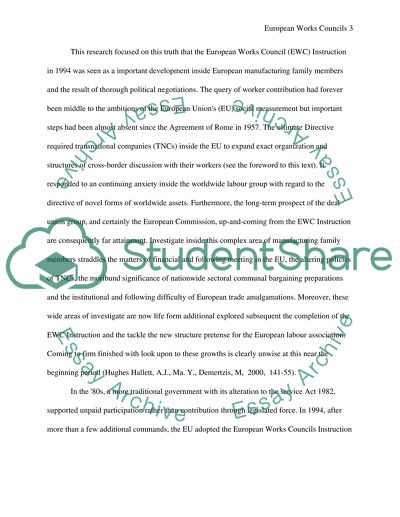Cite this document
(European Council Assignment Example | Topics and Well Written Essays - 3000 words, n.d.)
European Council Assignment Example | Topics and Well Written Essays - 3000 words. https://studentshare.org/politics/1527705-european-works-councils
European Council Assignment Example | Topics and Well Written Essays - 3000 words. https://studentshare.org/politics/1527705-european-works-councils
(European Council Assignment Example | Topics and Well Written Essays - 3000 Words)
European Council Assignment Example | Topics and Well Written Essays - 3000 Words. https://studentshare.org/politics/1527705-european-works-councils.
European Council Assignment Example | Topics and Well Written Essays - 3000 Words. https://studentshare.org/politics/1527705-european-works-councils.
“European Council Assignment Example | Topics and Well Written Essays - 3000 Words”. https://studentshare.org/politics/1527705-european-works-councils.


